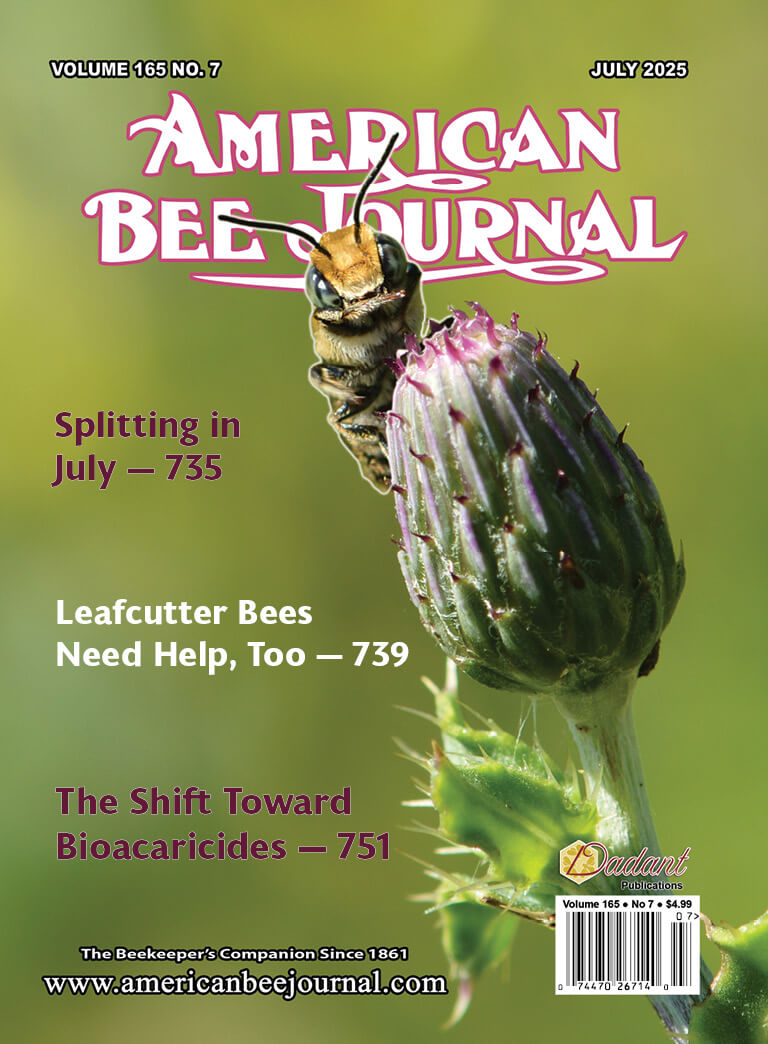This spring, Back Yard Beekeepers Association (BYBA, based in Weston, Connecticut) apiarist David Blocher contacted Aspetuck Land Trust’s Land Stewardship Director Lou Bacchiocchi looking for a place to host a honey bee queen rearing project. Bacchiocchi immediately thought of Aspetuck Land Trust’s Randall’s Farm Preserve as the perfect spot to host bees. This Easton, CT sanctuary is an all-encompassing haven for pollinators; the preserve has 34 acres of early blooming trees, diverse stretches of wildflower-filled meadows, prolific wetlands, and an abundance of surrounding farms whose crops would thrive with the introduction of new neighborhood pollinators.
A major goal of Aspetuck Land Trust’s Green Corridor initiative is supporting pollinators, like Blocher’s honey bees, due to the vital ecosystem services these insects provide. Aspetuck Land Trust is encouraging homeowners, for example, to do three things to support pollinators:
1) Plant native plants,
2) Rethink your lawn, and
3) Avoid pesticide and herbicide use.
Since Randall’s Farm is located within the Green Corridor and more importantly is directly adjacent to the newly acquired 34-acre Gilbertie’s Organic Farm, these BYBA bees will have an abundance of healthy forage nearby.
Blocher and his class of BYBA members, ranging in skill from novice to experienced, now tend to the 120,000-150,000 bees at Randall’s Farm while learning the delicate skill of breeding queens. However, this project doesn’t just aim to support locally-reared bees — its main goal has a more scientific edge. These queens are strategically bred to pass on genetic resistance to the varroa mite.
Varroa mite infestation, or varroosis, is the primary reason for bee colony mortality. Fortunately over many generations, some hives have adapted behaviors to defend themselves and their offspring from varroosis, called “Varroa Sensitive Hygiene” (VSH). Bees expressing this VSH trait understand how to identify pupal cells containing mites, uncap these cells, and remove the mite-infected pupae from the hive. This behavior can be passed down from the queen to each of her offspring, until the entire hive has the VSH trait. Blocher’s mission is to raise hives at Randall’s Farm that are entirely resistant to the mites, and meanwhile, teach local beekeepers how to do the same in their own hives to combat varroosis throughout the beekeeping community.
As these beekeepers practice rearing queens with the ability to combat varroosis at Randall’s Farm and in their own hives, queens from neighboring hives have the potential to mate with these VSH drones. This would then introduce the VSH trait to these colonies to grant them the ability to defend against the mites. Blocher’s education program has regional implications as his students are empowered with the skills to eliminate varroosis in their localities.
Bacchiocchi is especially proud that Aspetuck Land Trust supports this BYBA research project. Randall’s Farm isn’t the first Aspetuck Land Trust preserve to host research projects; the Caryl and Edna Haskins Preserve in Westport hosted a study on southern pine beetles and the Haskins property is currently home to a 3-year study about how pollinators respond to native plants being planted; the Trout Brook Valley preserve was home to a study on emerald ash borers and parasitic wasps. Aspetuck Land Trust is always open to collaborating with groups and researchers to host studies on its properties. “We’re using our properties not just for preservation and recreation,” Bacchiocchi said, “but also for scientific research.”


